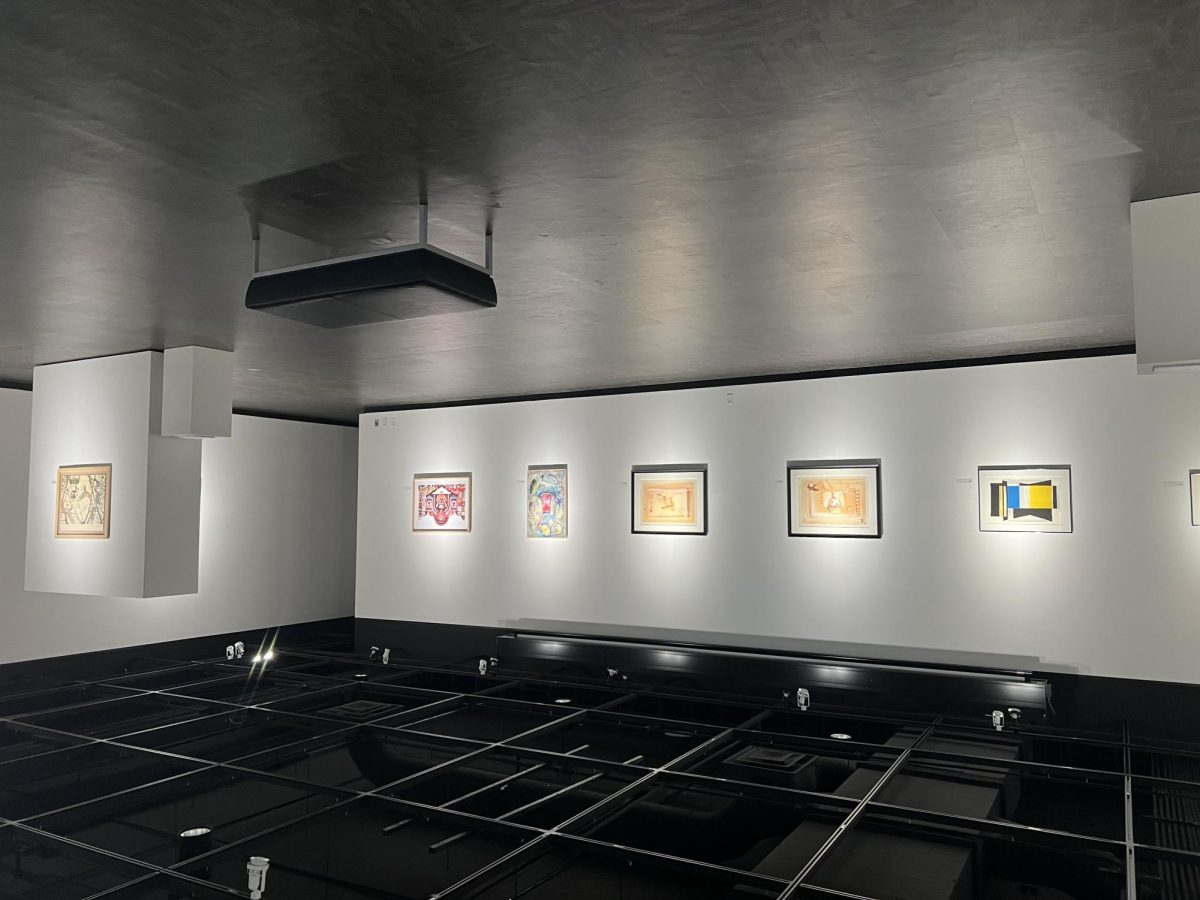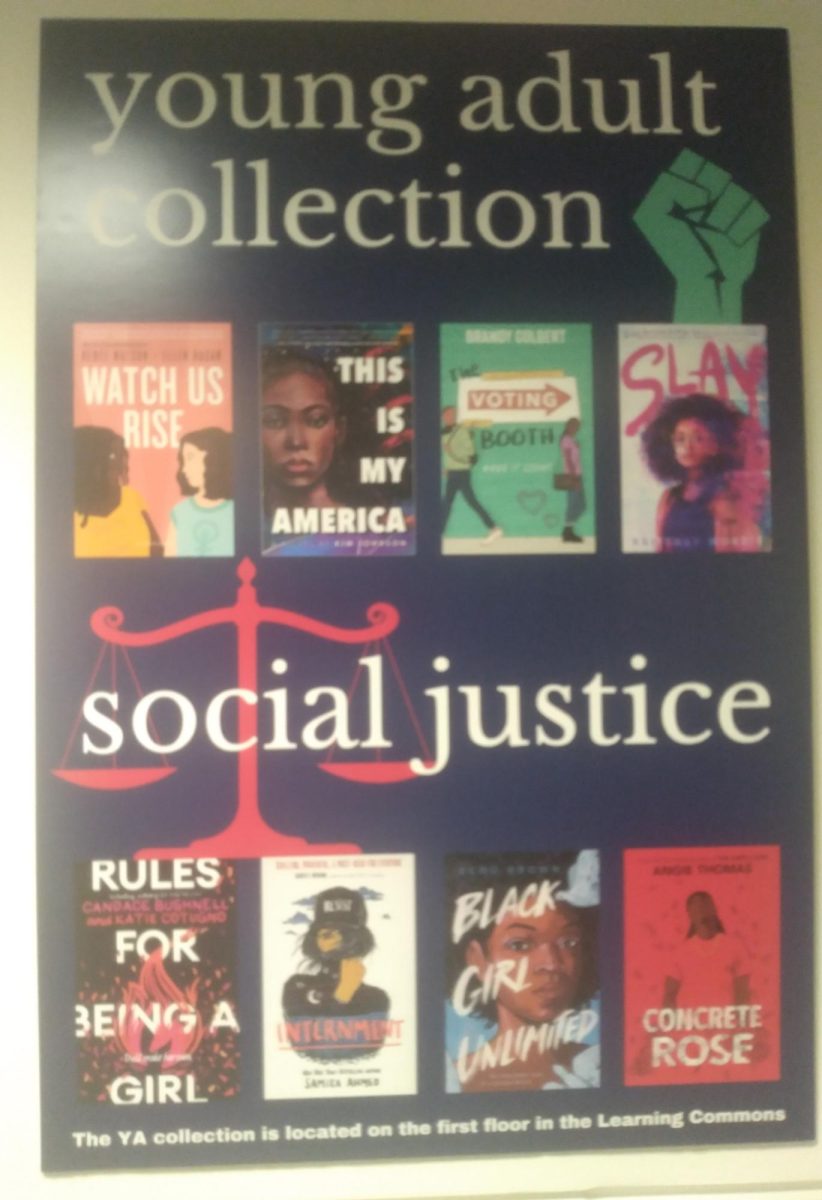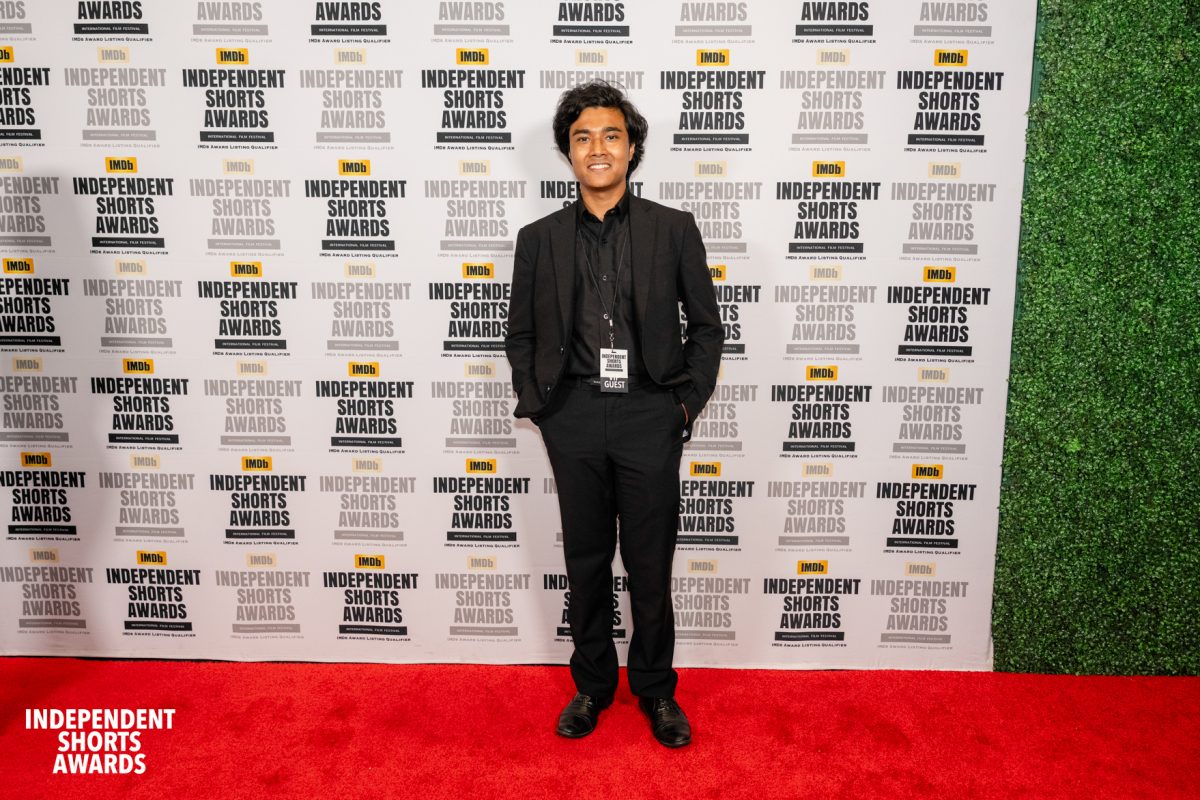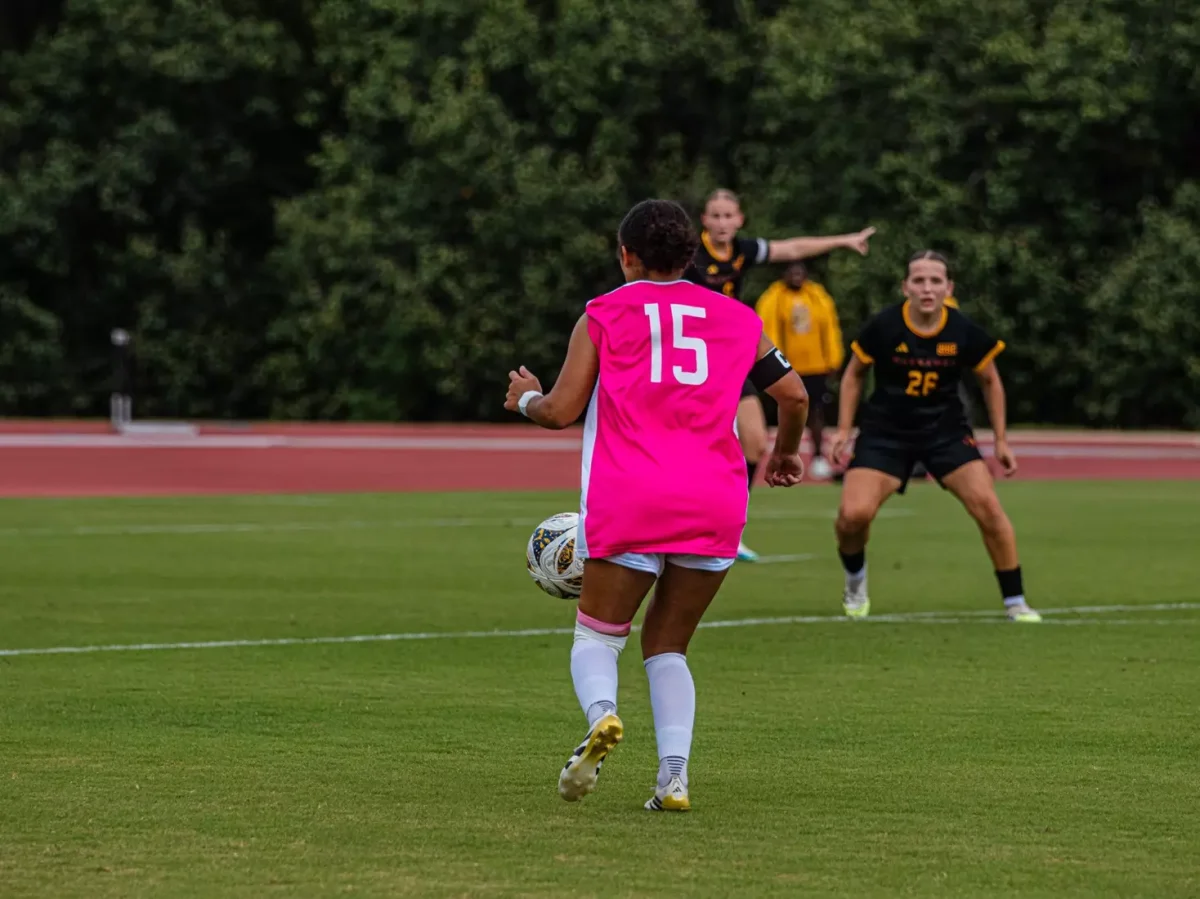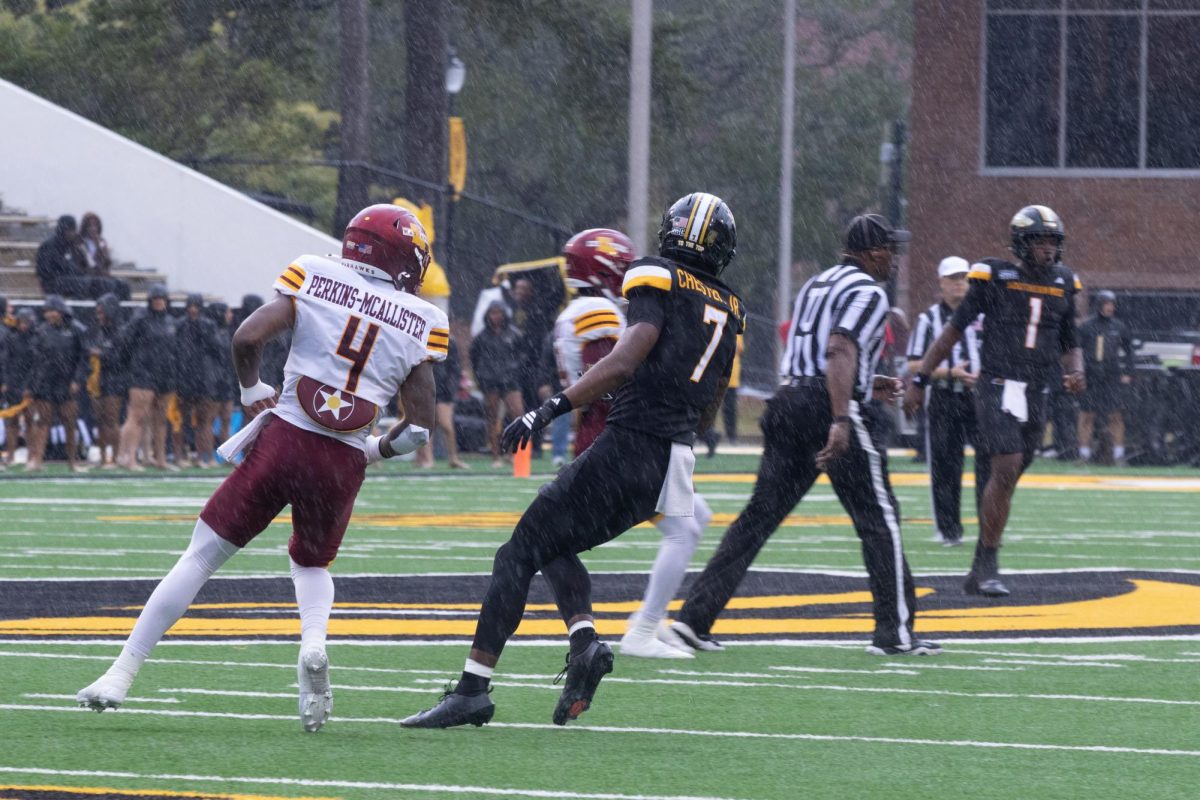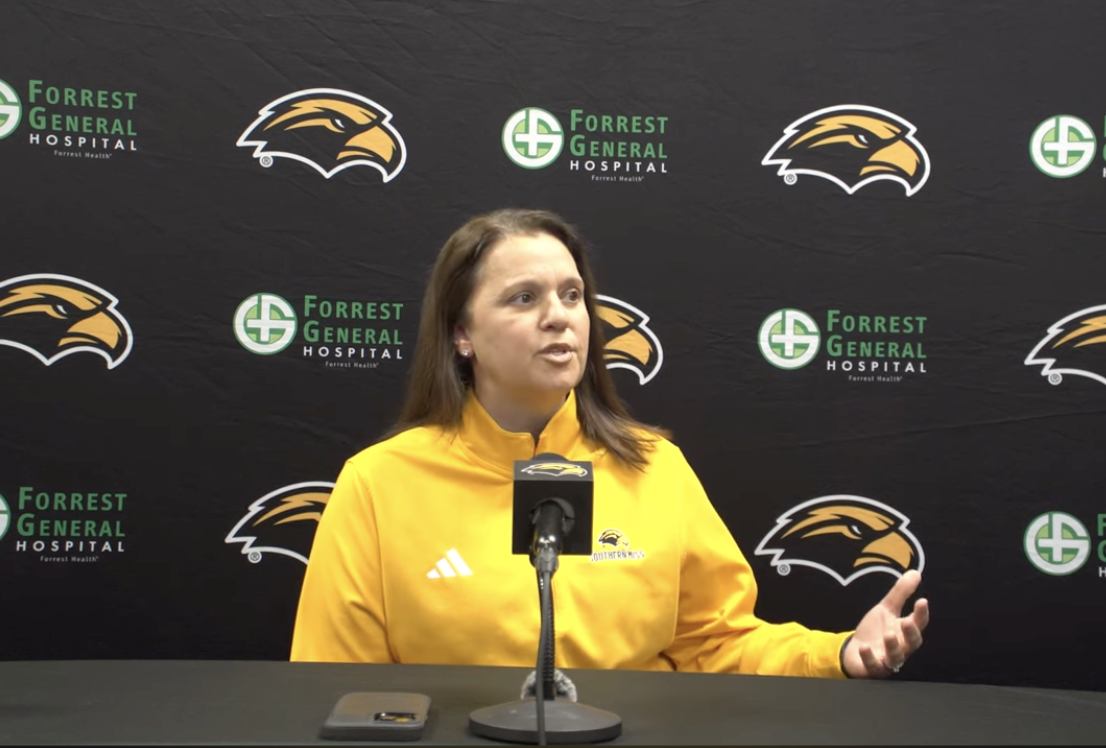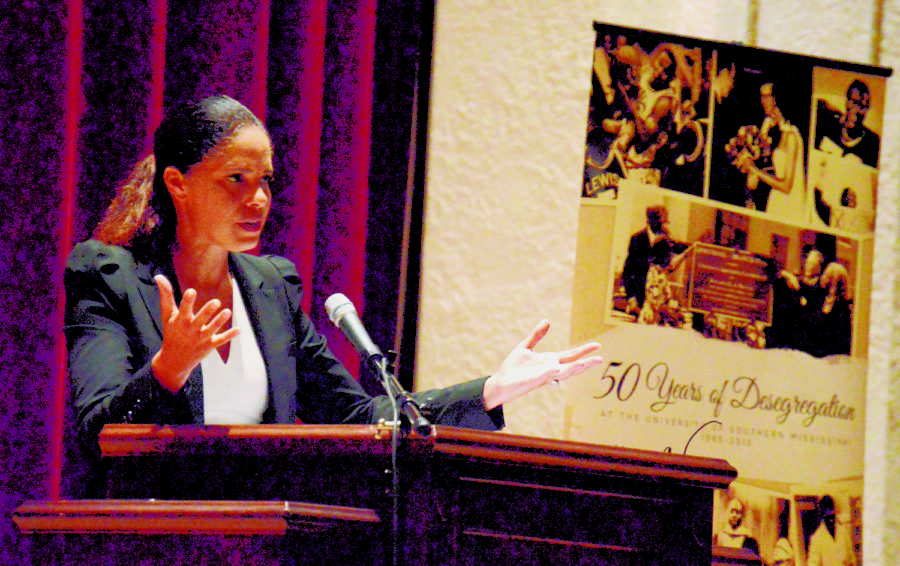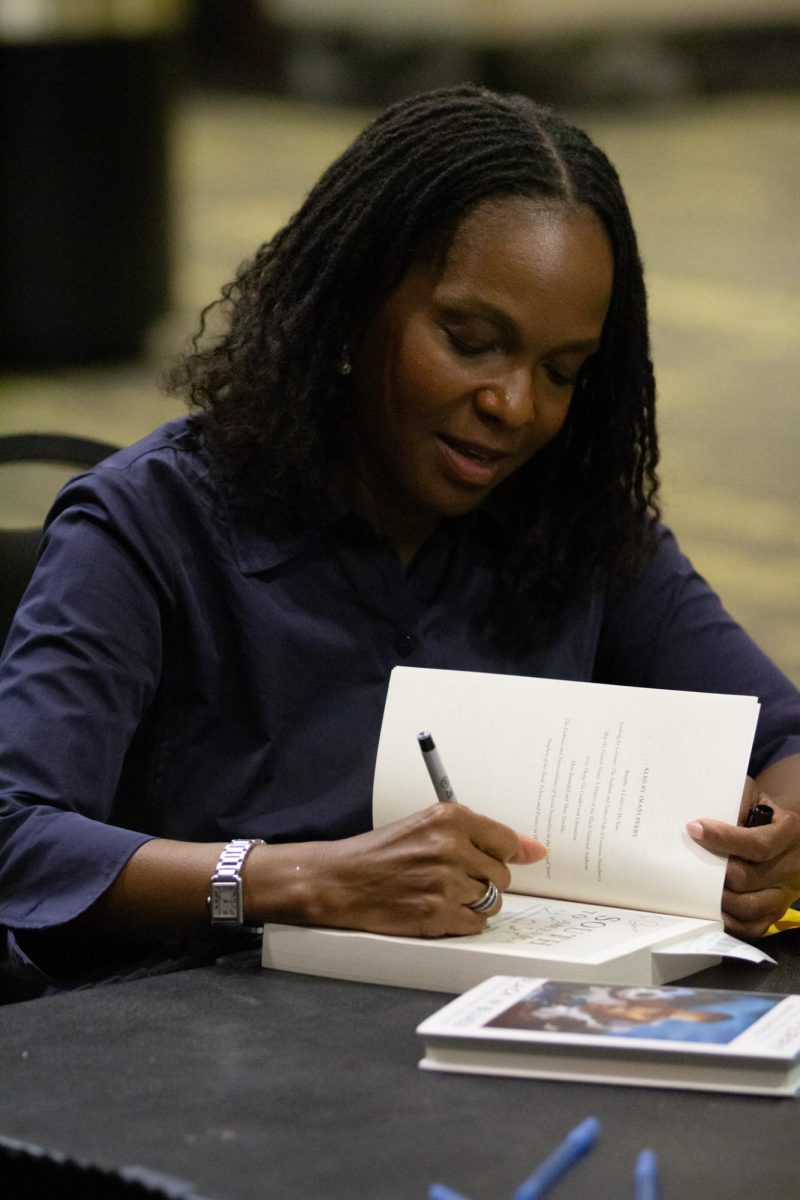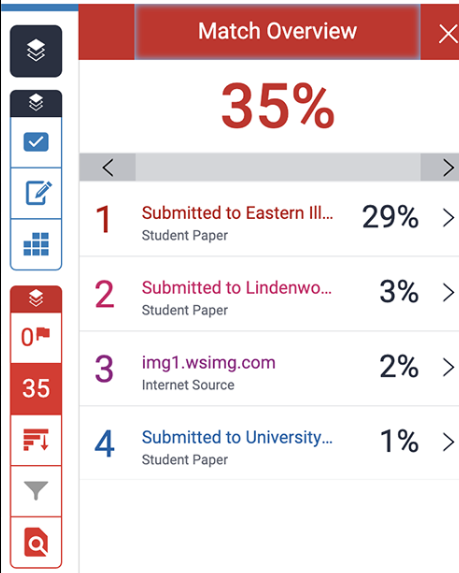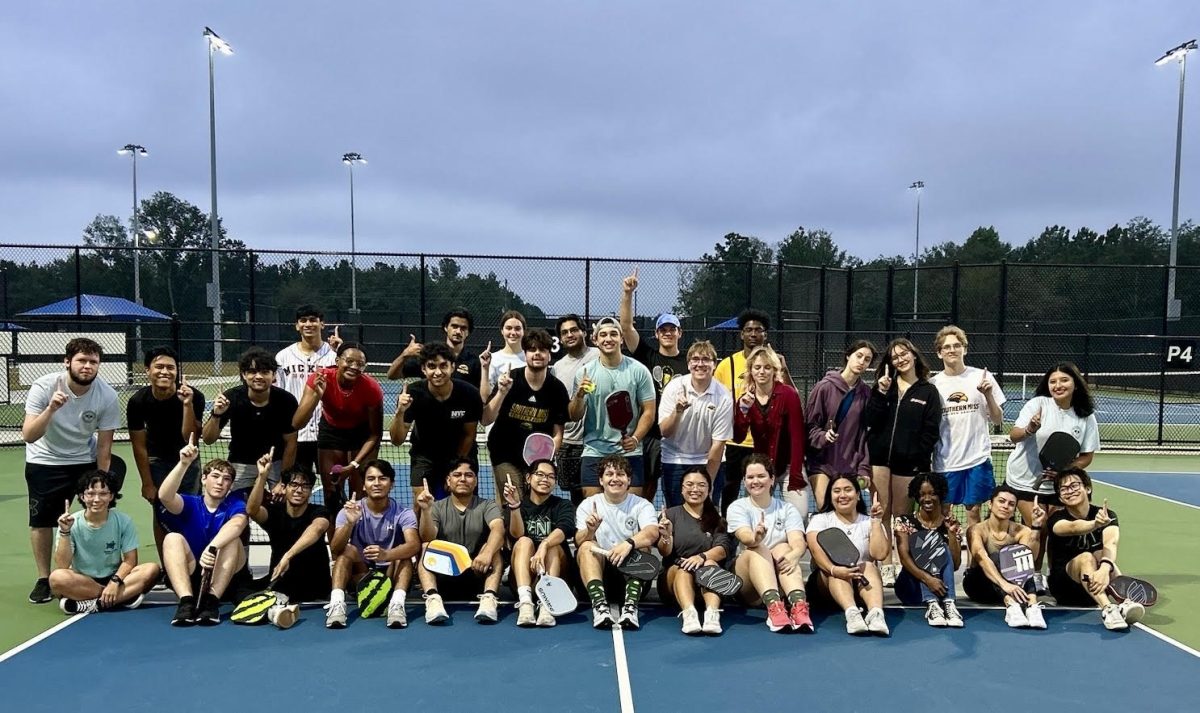As a part of The University of Southern Mississippi’s 50th anniversary celebration of desegregation, Soledad O’Brien, former CNN anchor and reporter, presented the keynote address last Friday at USM. Nearly 500 people attended the event in Bennett Auditorium to honor the university’s fi rst African-American students, Raylawni Branch and Gwendolyn Armstrong-Chamberlain.
President Rodney Bennett opened the event with recognition of the importance of the university’s desegregation in 1965. Tena Clark, CEO of DMI Music & Media Solutions and Southern Miss alumnus, is also a close friend of Soledad O’Brien. She introduced O’Brien with a speech.
“She loves connecting history to the present day struggles we through the voices of real people,” Clark said. “I am so pleased she has joined us today–a woman who, in her own right, is a pioneer and a woman I know that will continue the fight for those that cannot fight. ”O’Brien encouraged engaging in conversations that people tend to shy from or be shunned by, such as those regarding desegregation 50 years ago.
She spoke about how people’s stories intersect and are similar, using her own as an example. O’Brien’s mother is Cuban and African-American, and her father is Australian. In the 1950s, interracial marriage was reviled and illegal across much of the U.S. “(The diversity issue we struggle with today) is directly correlated to this nation not having frank and uncomfortable conversations about race. What you see in Missouri, Ferguson and Baltimore (are hot spots where you see different viewpoints) and what it means to be a minority today” O’Brien said.
“Those are not civil conversations. They are angry conversations. We have to hear both viewpoints. We have to listen to each other.” O’Brien covered the news for 30 years, covering events such as the 2004 tsunami and Hurricane Katrina. She is an award-winning journalist, philanthropist, author, executive producer and mother. Her career as a journalist began after her time at Harvard University. She said her biggest learning experiences came while doing documentaries with CNN.
“As a journalist, it offered the chance to have a conversation that we as a country often don’t want to have about race. How could you tell an in-depth story about America without discussing the details of people in that story?” – O’Brien
She said that documentaries helped her explore the hearts of people’s individual experiences and discover that all people are the same. O’Brien said that her parents taught her that if one is willing to struggle and go against the grain, then there is potential to succeed and make a lasting difference.
“I asked my mother what the reaction was like (when she was out with my bi-racial sisters), and she said, ‘People used to spit on us,’” O’Brien said. “I asked her what she did, and she told me, ‘Oh, Lovie, we knew America was better than that.’”
The family kept growing. O’Brien was the fifth of six children. In 1967, interracial marriage was made legal across the United States. The family then moved to Long Island.
“There’s a special bravery in sitting on the right side of history,” she said. “But progress is hard.”
O’Brien said the reason she accepted the invitation as keynote speaker for the event was her interest in historical societal changes involving race in America. O’Brien had dinner with Branch and Chamberlain on Friday.
Both were present during O’Brien’s speech. “Fifty years later, we celebrate their bravery,” O’Brien said. “And we need to do more than just celebrate their bravery. We need to try to be them and take that leap of faith to change the world the way we want it to be.”
The keynote address was followed by a question and answer session asked by USM student affiliates from the National Association.

